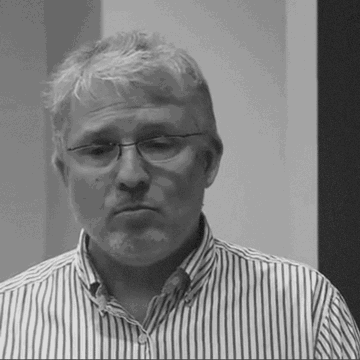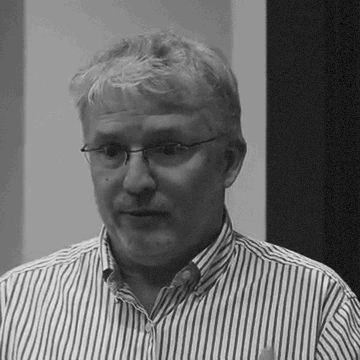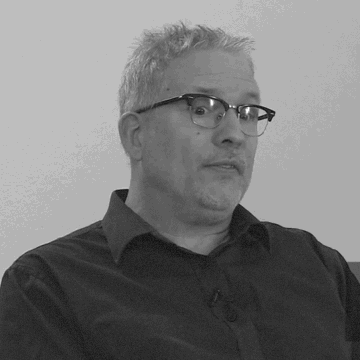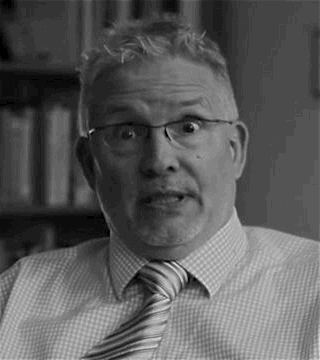Let’s continue our survey of the top 10 things you’d be crazy not to know about our growing mental problem.
6 It’s OK to laugh!
While lunacy is ultimately a climate change issue, it does differ from global warming in one important way: you’re allowed to laugh about it, according to CN’s Professor Stephan Lewandowsky [pictured].
Spokespersons for the mad rights movement couldn’t agree more. They’re no killjoys, they say—and the last thing they’d want to do is take the humor out of the subject.
“Every culture in history has enjoyed a chuckle at the expense of the less-hinged,” explains Professor Ian Hickie of Australia’s Brain and Mind Institute [BMI].
“This seems to be hardwired; we couldn’t outgrow it if we wanted to, which of course we don’t.”
And nobody laughs harder than nutjobs themselves, who are the first to dissolve into giggles at a good joke. (And if they have the awkward habit of anticipating the punchline by one or two sentences, all the merrier!)
“We always appreciate comedy, provided it makes sense without being hurtful, yet contains a broader point about the foibles of contemporary society,” explained a drooling maniac who agreed to rant at us in Sydney’s Northside Clinic.
“Then again,” he continued as we backed away slowly, “another equally valid comic tradition entails the reframing—in an exaggerated or surprising way—of some moral intuition of the time and culture in which the routine is performed.”
And if you can’t laugh at yourself, what’s the point of living?
“You might as well put your affairs in order, hop into a warm bath to stimulate peripheral blood flow and open your wrists with a razor blade (remembering to cut along the length of the arm, not crosswise—a classic beginner’s mistake),” to quote a patient information booklet distributed by the New South Wales Department of Health.
7 Immigrants are at risk.
We traveled to Sydney’s Southwest, where one cluster of suburbs is so rife with cray-cray it’s officially known as the District of Punchbowl.
It’s also an area of high immigration—and that’s no coincidence, say professional ethnographers.
At the area hospital we met women suffering from the erotomanic persecutory delusion that they’d be ravished by strangers unless they concealed every inch of their bodies from view.
In the emergency ward a man was angrily arguing with staff. From what I could make out with my limited Arabic, he seemed to be obsessed with the compass direction in which his bed was facing.
Administrators had set aside a room for the use of 20 or so patients who labored under the shared conviction, or folie à plusieurs, that they needed to ululate and perform a downwards-dog manoeuvre five times a day. I asked one man what he thought would happen if he failed to carry out this ritual. He muttered something about his “soul” going to “hell,” though he couldn’t say where either of these was located.
The local religious centre does what it can. One enterprising imam has set up a Friday activity club where hundreds of people with similar thought disorders find support from others going through the same thing. But he says he just doesn’t have the resources or training to give everyone in the area the help they need.
Meanwhile, though, some of Australia’s migrant populations not only seem to be immune to the kind of meshugaas that plagues Punchbowl, they actually outperform the country’s Anglo-Saxon indigenes on measures of psychic soundness, screw tightness and marble possession.
It’s a veritable head-scratcher. In terms of country of origin, says Professor Lewandowsky, the major epicentres of mental disturbance are as diverse and seemingly random as Indonesia, Lebanon, southern (but not northern) Thailand, Pakistan (but not India), Muslim Bosno-Albania (but not Catholic Serbo-Croatia), the Islamic Republic of Afghanistan, the Islamic Republic of Iran and the Islamic Republic of Iraq.
“Astute readers may notice,” continues Lewandowsky, “that these ‘hot spots’ have one and only one factor in common: they all happen to be war-ravaged nations with a long history of persecution by Israel, going all the way back to the Crusades, and to a lesser extent by the West.”
This observation has led to the favorite hypothesis of alienists everywhere: that most people who lose their senses do so as a result of Judeoamerican Islamophobia.
8 The stigma can be worse than the disease.



















